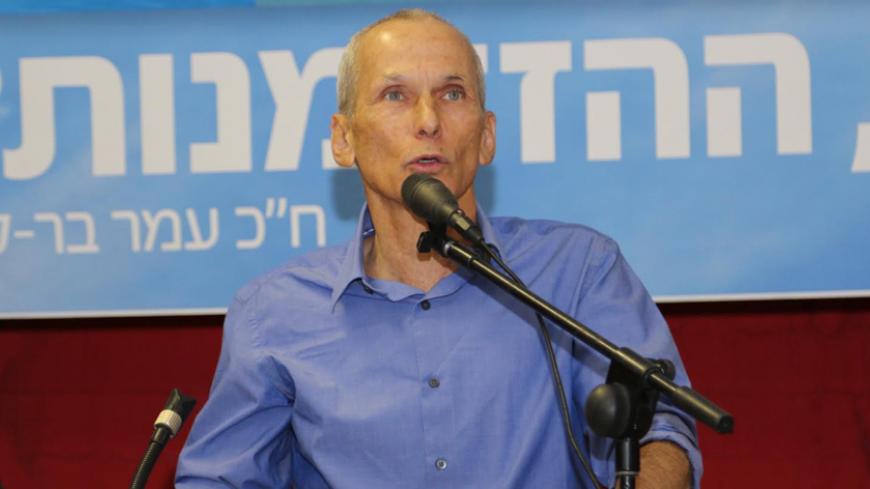It was the same when he served as commander of the elite Sayeret Matkal commando unit (1984-87) as it is now, when he is a Knesset member for the Zionist Camp. As Memorial Day for Israel’s fallen soldiers approaches, Omer Bar-Lev must decide where he should be: at one of the nation’s official events, or beside the grave of an old schoolmate and friend in the Kiryat Shaul cemetery. After deliberating, Bar-Lev decides in favor of his personal memories. This year, when the siren goes off at 11 a.m., he will again be standing over the grave of his friend Gideoni, within a 50-meter radius of the graves of three more boys from his class at Ramat HaSharon Public School.
Bar-Lev, a colonel in the reserves, is the son of Haim Bar-Lev, who served as the Israel Defense Forces’ eighth chief of staff and later as a minister for the Labor Party. He calls his participation in the 1973 Yom Kippur War the most formative event of his life, and it shows in his own private Memorial Day. Even now, during his political career, the war continues to influence him, serving as a kind of moral compass. In an interview with Al-Monitor, Bar-Lev recalls the daring operation that led to the release of the hijacking victims in Entebbe, during which his commander Yoni Netanyahu, brother of Prime Minister Benjamin Netanyahu, was killed.



